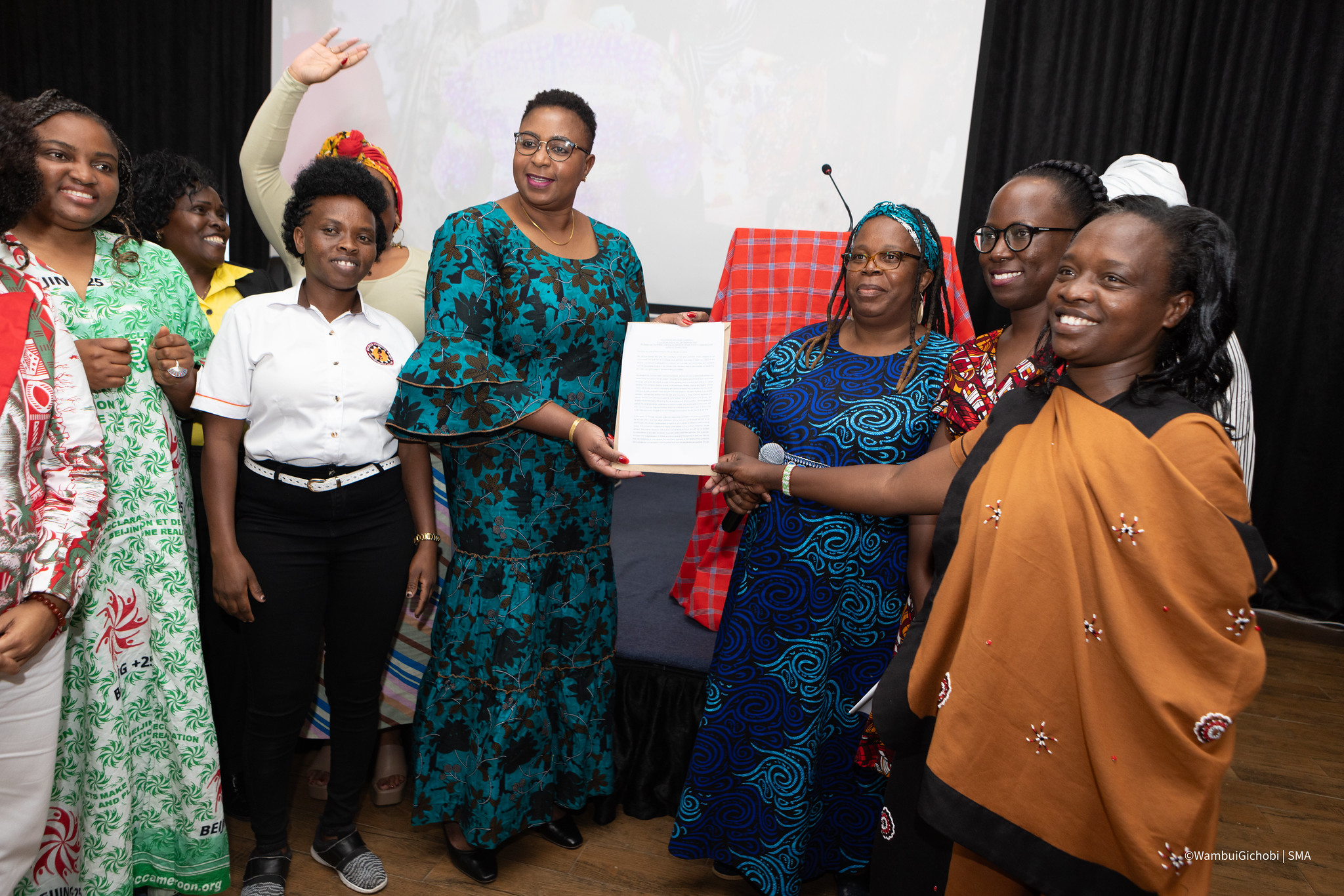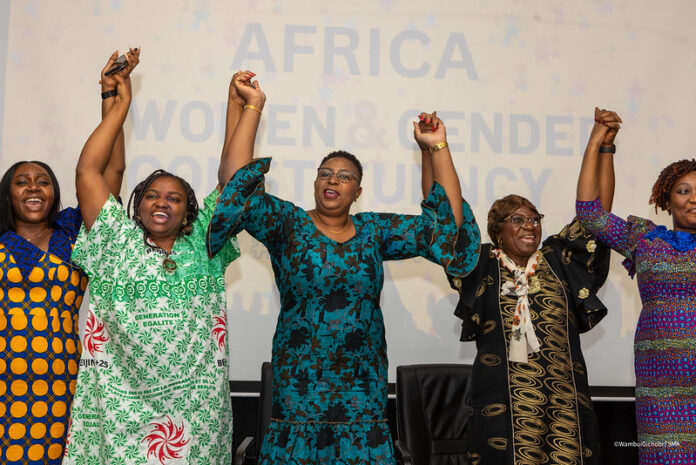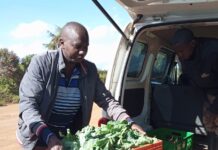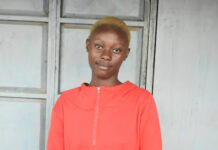By Lenah Bosibori
Nairobi, Kenya: Christine Kandie traveled from Baringo County to represent people with disabilities in the ongoing African Climate Summit (ACS) in Nairobi.
Kandie says that in Lake Baringo Landscape, women with disabilities bear the brunt of climate change.
“When people were being taught how to take measures during floods, people with disabilities were left behind, and this led them to be left behind,” said Kandie.
Kandie was speaking during the pre-session titled ‘Claiming our narratives of African women’s leadership in the context of climate change’.
Kandie is the Director of the Endoroise Indigenous Women Empowerment Network in the Baringo Lake Bogoria landscape.
“We train women and people with disabilities by strengthening their voices, we understand the challenges they are going through, currently their produce has gone down due to climate change,” said Kandie during an interview.

Running a group of 300 members, Kandie says that she believes that they will be put on the global agenda when the climate change agenda is being discussed.
Agriculture is a critical sector across Africa employing a significant portion of the population and serving as a primary source of livelihood for many.
However, climate change poses serious challenges, including increased temperatures, erratic rainfall patterns, and more frequent droughts, which directly impact productivity.
According to the United Nations Food and Agriculture Organization (FAO), women comprise about 50% of the agricultural labor force in Sub-Saharan Africa.
However, women often have limited access to resources like land, credit, and modern farming techniques, making them particularly vulnerable to the effects of climate change.
According to Aisha Jumwa, the Cabinet Secretary, Ministry of Public Service Gender and Affirmative Action, Women in Africa are disproportionately affected by climate change due to their roles in households and communities.
“Women are often responsible for tasks such as water collection and food production, which become more challenging in the face of water scarcity and unpredictable weather patterns,” said Jumwa.
Jumwa adds that studies show that women and children make up about 80% of the people displaced by climate-related events in Africa. In addition, a significant number of female-headed households are particularly vulnerable to climate-induced poverty.
“Africa’s urban areas are not immune to climate change impacts. Rising temperatures, increased heat waves, and water scarcity pose significant challenges for urban infrastructure, public health, and overall livability,” adds Jumwa.
Jumwa launched the Africa Women and Gender Constituency to advocate for policies that address the specific needs of women in adapting to and recovering from climate-related disasters.
“We pledge to support and nurture the emerging leaders among us, ensuring that they have the resources and opportunities to lead us towards a sustainable future,” added Jumwa.
She assured support from the Kenyan government and its commitment to the women.














